Space pathways
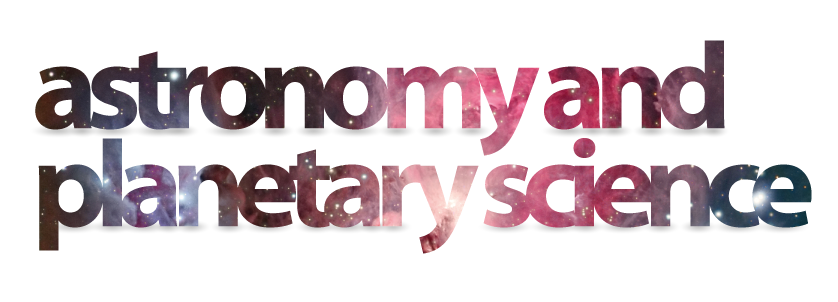
Discover the Universe by studying astronomy and planetary science, or astrophysics with space science and earn your qualification through The Open University.
Further your understanding of astronomy and planetary science, or astrophysics with space science through a mixture of compulsory and optional study modules on our Solar System, planets orbiting other stars, the life cycle of stars, extreme conditions near black holes, and the evolutionary history of the Universe.
Our BSc Natural Sciences (Q64, Astronomy and Planetary Science strand) and MPhys Master of Physics (M06, Astrophysics with Space Science strand) degree programmes allow you to study astronomy and planetary science or astrophysics with space science flexibly - full-time or part-time - at a pace to suit you and your other life commitments.
The MPhys Astrophysics with Space Science pathway is accredited by the Institute of Physics and the BSc Natural Sciences Astronomy & Planetary Science strand is recognised by the IoP. For full details and alternative combinations see the IoP document on previous accreditation schemes of OU degrees and the current accreditation scheme.

By achieving a Natural Sciences qualification with The Open University you’ll be an adaptable graduate with a range of transferable skills that are highly valued in the labour market. The logical, reasoned approach needed for science study means science graduates are well placed to enter both scientific and non-scientific jobs. As an OU student you’ll have full access to our Careers Advisory Service to support your study choices and career planning. See where your OU Natural Sciences degree could take you and how studying Science with the OU enhances your career prospects
What will I study for my Astronomy and Planetary Science or Astrophysics with Space Science degree?
Here's an outline of what you might study on the astronomy and planetary or astrophysics with space science pathways.
Stage 1 astronomy and planetary science or astrophysics with space science

Your study starts with a wide-ranging introduction to highly topical areas of modern science, through which you’ll begin to acquire the practical, investigative and mathematical skills essential to your development as a scientist.
Your key introduction to studying Natural Sciences will usually be Questions in science (S111) (60 credits). Following this, Essential Mathematics 1 (MST124) (30 credits) provides a broad and enjoyable foundation for university-level mathematics needed on the path towards advanced physics modules. A further 30 credits will usually come from Physics and Space (SM123) (30 credits) or Essential mathematics 2 (MST125) (30 credits). For the MPhys astrophysics with space science degree, alternative routes through Stage 1 (without studying S111) are available comprising either a "Basic maths start" (including Discovering Mathematics (MU123)) and an "Advanced start" (including the option to study the Stage 2 modules Astronomy (S284) and Planetary Science & the search for life (S283)). See the pathway graphic on the right of this page for details.
Stage 2 astronomy and planetary science or astrophysics with space science
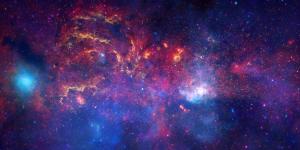
At stage 2 for the MPhys astrophysics with space science degree, you will begin with the main physics foundation module Core Physics (S227) (60 credits). This wide-ranging module teaches general physics with an emphasis both on the concepts and their basic numerical description, as well as their application. The module covers classical mechanics; electric and gravitational fields and potentials; electromagnetism and relativity; waves and optics; thermal and statistical physics; quantum physics and an introduction to its applications to solids, atoms and nuclei. The module develops problem-solving skills and is supported by a variety of interactive online activities.
At stage 2 for the BSc natural sciences degree, your studies will focus on your subject area. You begin with two 30 credit foundation modules in astronomy and planetary science
Astronomy (S284) (30 credits) covers basic astronomy with a modern observational approach. It encompasses two broad themes of ‘Stars and Galaxies’ and ‘Multiwavelength Astronomy’. Starting from cosmic length scales, learn how astronomers measure the Universe – through spectroscopy, imaging and time-variability. You’ll learn about the constituents of stars and galaxies, and study their formation, evolution and rebirth through energetic processes. To finish, revisit the Universe from the perspective of cosmic time scales. Throughout, alongside astronomy, you’ll develop your computing, maths and physics skills.
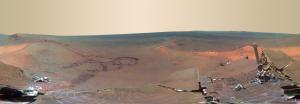
Planetary science and the search for life (S283) (30 credits) tackles fundamental questions about our Solar System. How did it form and how has it evolved? Why aren’t all the planets like Earth? How and why did life arise on Earth? Has life arisen elsewhere in the Solar System or beyond, and could it be intelligent? You’ll look at the exploration of the Solar System by spacecraft; planetary processes such as volcanism and impacts; the structure of planets and their atmospheres; and asteroids, comets and meteorites.
For both the BSc natural sciences and MPhys astrophysics with space sicence degrees, these modules are followed by two 30 credit modules that focus on experimental skills and observational astronomy, and on the mathematical concepts underpinning the advanced stage 3 astronomy modules.
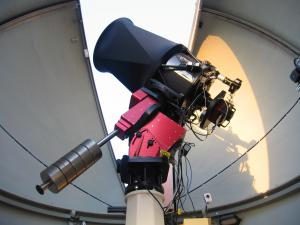
The main activities in Remote experiments in physics and space (SXPS288) (30 credits) address topics in physics, astronomy and planetary science as diverse as the properties of electrons and the life cycle of stars. Online – from the comfort of your own home – you’ll have the opportunity to use equipment ranging from a bench-top X-ray spectrometer to an optical telescope in Tenerife. The aim is to build experience and expertise in practical investigation, including the skills of observation, hypothesising and reporting. The module ends with an exciting project related to a simulated Mars mission that develops team-working skills that are critical to collaborative scientific enquiry. SXPS288 makes use of innovative remote-access experiments hosted by the award-winning OpenScience Laboratory.

Mathematical methods (MST224) (30 credits) is designed to teach you about a variety of mathematical methods which are used in modelling through their application to solving real world problems. These methods include differential equations, linear algebra and vector calculus. You will become familiar with new mathematical skills mainly by using pencil and paper and by thinking.
Stage 3 astronomy and planetary science or astrophysics with space science
.jpg)
At Stage 3 you will study more advanced astronomy modules which draw on your understanding of the fundamental concepts of astronomy and planetary science and on the mathematical skills you developed at Stage 2. You will begin to use more independent study skills which will culminate in a module in which you will carry out a research project on a topic linked to one of your Level 3 modules.
On both the BSc natural sciences and MPhys astrophysics with space science degrees you will study two compulsory modules: "Astrophysics of Stars and Exoplanets" and "Cosmology and the distant Universe".
Astrophysics of Stars and Exoplanets (S384) (30 credits) uses quantitative physical methods and techniques of observational astronomy to study topics in stellar and exoplanetary astrophysics. The module comprises several parts: first you will study two up-to-date textbooks that cover the life cycle of stars and the production of the chemical elements, and the fast moving field of exoplanets including the methods used in their detection and characterisation, and their physical properties. The next part is a practical component that you study at home, involving the acquisition of astronomical data using a robotic telescope and its subsequent analysis and interpretation. Finally you will study a set of contemporary case studies in stellar and exoplanetary astrophysics showcasing the research of the OU staff.
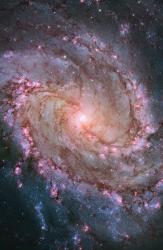
Cosmology and the distant Universe (S385) (30 credits) covers the fundamental concepts of modern cosmology and selected topics in extragalactic astrophysics. With this module you’ll develop the mathematical tools and physical models needed to describe the Universe on the largest scales, and will examine how today’s stars and galaxies came to exist. You’ll also explore a variety of phenomena of the distant Universe, from the earliest galaxies to black-hole jets and gamma-ray bursts. Throughout the module theoretical ideas will be tested via a wide range of observational evidence. At times you’ll come up against the limits of our current understanding, examining major open questions.
If you follow the BSc natural sciences route, a further 30 credits can come from a number of modules in physics or applied mathematics. These include Evaluating Contemporary Science (S350) (30 credits), Quantum Physics (SM380) (30 credits), Electromagnetism (SM381) (30 credits), Deterministic and stochastic dynamics (MS327) (30 credits), Mathematical methods and fluid mechanics (MST326) (30 credits) or Computational applied mathematics (MST374) (30 credits).
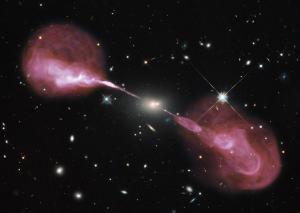
The culmination of your stage 3 BSc natural sciences studies is the project module Science project course: radiation and matter (SXP390) (30 credits). You’ll undertake individual investigations within defined topics in the general area of radiation and matter: quantum entanglement, bioelectromagnetism, gravitational lensing, astrophysical jets and exoplanets. There is also a physics education research topic. You’ll need access to scientific literature, probably from electronic library sources. The study materials provide a guide to planning and conducting project work; help with searching and using the literature; and writing a report, but ultimately this is a chance for you to plan and execute a piece of work for yourself.
If instead you follow the MPhys astrophysics with space science route, you will take Quantum Physics (SM380) (30 credits) and Electromagnetism (SM381) (30 credits) from the selection above and not SXP390.
Stage 4 astrophysics with space science
For the MPhys astrophysics with space science degree, there is in addition Stage 4 study, comprising a further 120 credits.
You will begin by studying Space Science (S818) (60 credits) which is built on the space research experience of OU academics. This module takes a case-study based approach. It provides a solid introduction to space mission design and operations while engaging with current results at the forefront of planetary and space science. The module is heavily influenced by our research. So, for example, some of the topics covered are: imaging detectors for space missions; mass spectrometry for a cometary lander; the prospects for science conducted from the lunar surface; high-precision astrometry of stars in our Galaxy; geological exploration of the surface of Mars.
Finally, the culmination of your MPhys study wil be the Masters level project in physical sciences (S841) (60 credits) in which you will undertake an individual research project linked to the research of OU staff.
Learning underpinned by research

The Open University doesn’t just teach: it’s a global leader in research and innovation too, with OU research and development ranking in the top third of UK universities. The Faculty of Science, Technology, Engineering and Mathematics (STEM) has a long and distinguished record of conducting high quality, internationally leading research. Our researchers also contribute to our state of the art curriculum material. Find out more about our astronomy research.
What's OU study like?

Our long established, quality distance-learning methods use innovative technologies to provide a modern, blended learning experience. We’re designing our new Science modules with on-screen delivery in mind, taking advantage of year-on-year developments in new technologies to make your studies with us even more engaging and flexible - on computer, mobile and tablet devices.
You will be immersed in interactive activities during your astronomy and planetary science studies, using a mix of high quality text, graphics, audios and videos to support your learning.
Find out more about what it's like to study science at the Open University here.
How much will it cost?
Studying astronomy and planetary science with The Open University is not just flexible but great value for money, whether you live at home or away.
Take a look at funding in more detail
Are there any formal entry requirements?
No - most of our undergraduate courses (including Natural Sciences) have no formal entry requirements.
Most people start off their science studies with our introductory module S111 Questions in science. To get the best from it you’ll need some knowledge of science concepts and mathematical skills, and the ability to read and write to a good standard of English. Our Access module is great preparation if you need it.
Can I try some study first before committing to a degree?
Absolutely. We’ve got a number of different options available:
- Our Science access module lets you try out the OU’s style of learning. You’ll get your own personal tutor and you may even be able to study for free.
- If you want to try online study without direct tutor support, have a look at our free Astronomy, Planetary & Space Science courses on OpenLearn.

